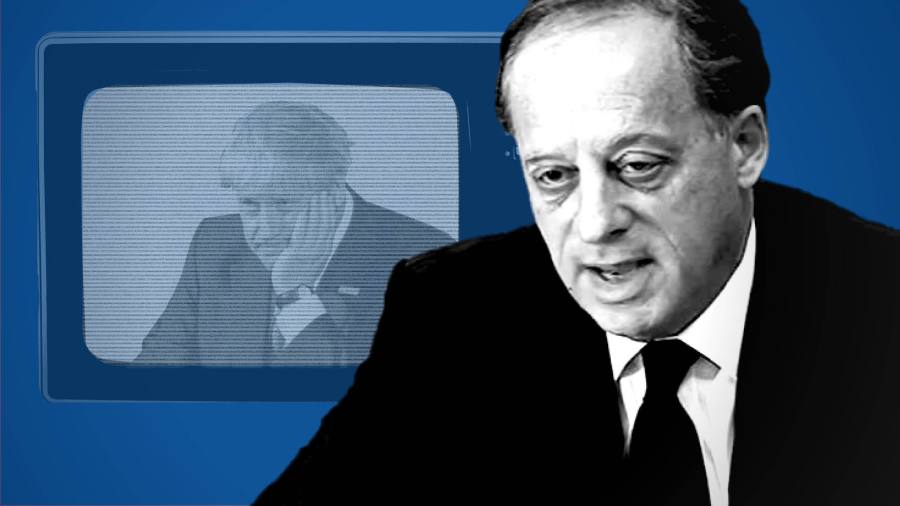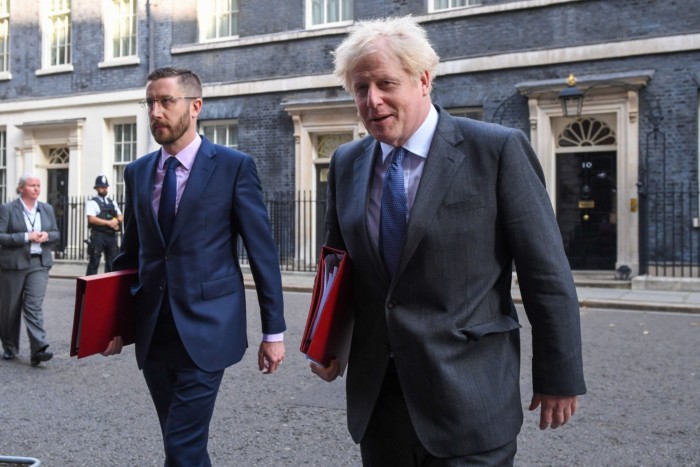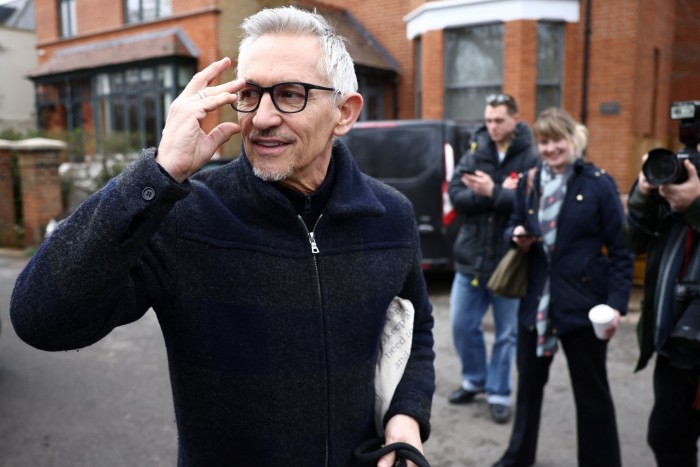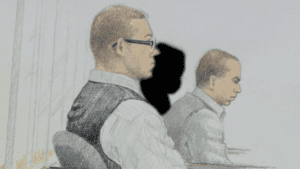
Richard Sharp was adamant he had done little wrong, insisting that an investigation into the circumstances of his appointment as BBC chair proved any breach of relevant rules was “inadvertent and not material”.
But Adam Heppinstall KC, who was asked by the commissioner for public appointments to conduct an inquiry, was clear in his report published on Friday that he was not trying to judge whether or not any errors by the former Goldman Sachs banker were made inadvertently or not.
Rather Heppinstall sought to establish, and went on to find, that Sharp had breached the governance code over public appointments, and the BBC chair responded by saying he was quitting in “the interests of the BBC”.
Labour in January asked the public appointments commissioner to conduct an investigation into Sharp’s selection as BBC chair following a Sunday Times report that he helped Boris Johnson secure a guarantee on an £800,000 loan shortly before the then prime minister recommended his appointment at the public service broadcaster.
The newspaper added that Sam Blyth, a distant relative of Johnson, offered to act as guarantor on the loan, and asked Sharp for help on taking the matter forward.
Heppinstall’s inquiry did not make any findings about that press reporting, but found Sharp’s actions in relation to his application for the BBC chair gave rise to “potential perceived conflicts of interest”.
The first arose when Sharp told Johnson he wanted the BBC chair role before he applied in November 2020, alerting the very person who would make the final decision on the job.
The second happened when Sharp told Johnson he would meet cabinet secretary Simon Case in an attempt to introduce him to someone — Blyth — who could help with his personal finances. Sharp met Case to inform him of the Blyth offer of financial help in December 2020.

Heppinstall’s report said Sharp wanted Case to ensure “any assistance given to the . . . prime minister . . . complied with any applicable rules and so that he would have no further involvement with the matter”.
The problem was not Sharp’s close connections with Johnson or the Conservative party, to which he was a donor, or his involvement in trying to bring together Case and Blyth.
It was that Sharp failed to disclose these potential perceived conflicts of interest to the panel which interviewed the candidates for BBC chair and advised ministers on who to appoint.
Heppinstall’s report found that there was “a risk of a perception that Mr Sharp was recommended for appointment because he assisted (to the very limited extent of attempting to make the introduction to the cabinet secretary) the former prime minister in a private financial matter, and/or that he influenced the former prime minister to recommend him by informing him of his application before he submitted it”.
Sharp said on Friday there was no evidence “to say I played any part whatsoever in the facilitation, arrangement, or financing of a loan for the former prime minister”.
He added Heppinstall’s report found his involvement “very limited” and “his error” was believing that the conversation with Case “removed him from any conflict or perception of conflict . . . I understood this recusal to be absolute”.
Case, Britain’s youngest-ever cabinet secretary, has been dogged by controversy since his appointment by Johnson in September 2020 — and the Sharp affair has put him in the spotlight again.
Case has been criticised for his role in the so-called partygate scandal in Downing Street during the Covid-19 pandemic and for failing to uphold higher standards in Whitehall, although his supporters said it was an uphill task when dealing with a prime minister as chaotic as Johnson.
The cabinet secretary is said by senior officials to have been considering whether to step down this year after the coronation of Charles III or whether to continue until 2025, beyond the next general election.
Case’s supporters said the crucial thing was that the cabinet secretary was not criticised by Heppinstall, and that ultimately it was a matter for Sharp alone to declare any potential conflict of interest.
Sharp’s position as BBC chair was becoming untenable after members of its board voiced concerns after a briefing on Heppinstall’s report, according to people with knowledge of the situation.
Many in the media industry see some truth in Sharp’s departing words that he has “acted at all times in the public interest, and for the betterment of the BBC”.

When he joined the BBC, it was under attack from parts of the government for its perceived left-leaning staff and inefficiencies.
Sharp showed a willingness to defend the BBC as an impartial public service broadcaster, and fought for the return of government funding for the World Service.
Media analyst Claire Enders described Sharp as the right BBC chair at the right time, using his links with the government for the benefit of the broadcaster and proving “extraordinarily effective” as a result.
The next chair will probably see the BBC to the end of its current government funding agreement in 2027, and have a key role in safeguarding the future of the broadcaster in the face of growing competition from large, well funded streaming giants.
The BBC will have a funding gap of nearly £400mn a year by 2027-28, according to its estimates, owing to changes to the licence fee and inflation.
However, Enders said the BBC now at least has a more “benign” political climate, with fewer of the hardline Conservative MPs who frequently knocked the broadcaster in Rishi Sunak’s cabinet compared to Johnson’s.

